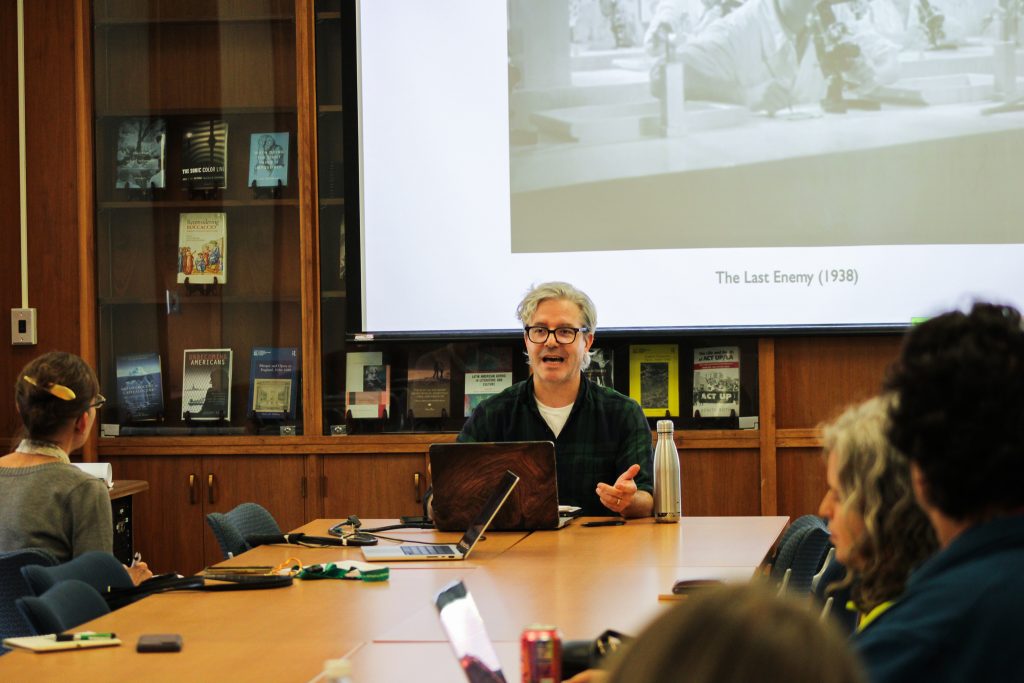The Institute for Advanced Studies in Humanities, this past week, continued its speaker series, which encourages faculty to describe their scholarship. The series started in fall 2010 to foster humanistic scholarship, embracing collaboration and supporting students and faculty through their research.
Brendan Hennessey, an associate professor of romance languages and literatures, dove into a niche but relevant topic to society today, malaria in Italian cinema.
“Cinema, especially documentaries and newsreels, were a great way to promote clean, healthy lifestyles, but I noticed that there were a lot of illnesses depicted which I found interesting,” Hennessy wrote in an email. “Malaria was a huge problem in Italy at the time so I thought I’d look into it further.”
The main focus of the event was to understand the effect of Benito Mussolini’s fascist policies on every aspect of the Italian lifestyle, from health and physique to the major diseases striking Italy during the 20th century.
Hennessey’s audience listened as his presentation moved from understanding Mussolini’s effect on public health to critiques and analyses of Italian films, like the 1933’s “Camicia Nera,” also known as “Black Shirts” and 1938’s “The Last Enemy.”
Both films sought to paint Italy as a place of health and prosperity when in reality, it was quite the opposite. Exploring a brief overview of the history between 1922 and 1943, the presentation explored the truth behind the media’s portrayal.
“My presentation is really about how people can’t fake disease no matter how hard they try,” Hennessey wrote. “Fascism spent a lot of time portraying Italy as a healthy, productive place, even when many people were suffering from diseases like malaria and tuberculosis. You can’t just ignore scientific facts and pretend that diseases will go away on their own.”
Through Mussolini’s rule, the spread of diseases in Italy bled into the spread of Italian antisemitism, racism and eugenics to Nazi Germany and Adolf Hitler’s regime. Though the presentation’s topic may seem specific, it applied to more than just disease representation, exploring the political, economic and social ramifications that followed them. Hennessey added that the relation to present-day life lies in the presence of diseases and how we respond to them.
Wendy Wall, the institute’s director and an associate professor of history, described the importance of the speaker series events.
“They offer a wonderful opportunity to foster collegiality and unexpected discussions by bringing people together who wouldn’t otherwise see each other,” Wall wrote in an email. “Scientists often work in teams, but that’s rare in humanistic disciplines. It’s easy for people in these fields to spend all day in their office, seeing only students or people on their hall or floor. That usually means people in their department. When you get folks from different disciplines all talking about one project, intellectual magic can happen!”



